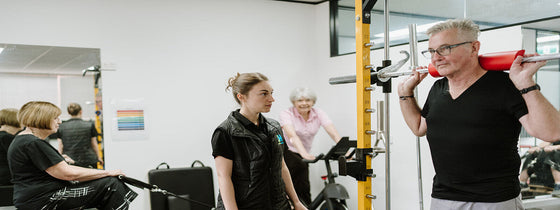If you have ever had the experience of waking up after a night's sleep with a terribly stiff and painful neck you may have understandably become quite worried about what is going on. It is common for this type of neck pain and experience to be diagnosed as a ‘wry neck’. This is an interesting name but doesn't really tell us much about why our neck is experiencing such terrible symptoms.
It is common for patients with a wry neck to have highly restricted rotation of their neck i.e can't turn their head and one direction being worse than the other. It can often feel as if your head is stuck in an awkward position, and you get horrible pain when trying to move it.
This condition can affect the neck in the upper or lower region, usually one side is worse than the other and is typically associated with inflammation of synovium around the small joints in your neck which is a layer connective tissue that contains and creates joint fluid to keep them mobile and healthy. This inflammation could be caused by overload from a physical stress such being tackle and jerking your head or sleeping in an awkward position for a long period of time.
Thankfully this condition despite being very painful is associated with minimal to no damage or long-term effects and can respond very well to a combination of physiotherapy treatment and exercises and over the count pain medications. With early assessment and treatment some Wry necks can settled down over a couple of days while some may take longer than a week. Overall, the prognosis is a full recovery.
If you suspect a wry neck is the cause of your current symptoms don't delay in seeking treatment from our Physiotherapy team and if you have recovered from the pain, but a stiff neck has been left behind it could be of great value to seek out physiotherapy assessment and treatment to restore full range and reduce the risk of further flare ups. Book today via 9431 5955 or via our website to get relief ASAP!!

OHL is integrating a new athletic screening assessment into its practice to further enhance our community's sporting ability. This screening assessment combines range of motion, strength profiling, force deck analysis, and subjective training status to give athletes a comprehensive performance snapshot. By establishing a baseline and identifying key areas for improvement, we can tailor your training to enhance performance, provide insight on key metrics, and stay resilient throughout the season. Whether you're preparing for preseason, managing midseason demands, or simply aiming to train smarter, this assessment delivers the data-driven insights you need.

If you're experiencing back or neck pain with neurological signs and symptoms, a thorough neurological examination is crucial for accurate assessment and effective treatment. In this Optimal Tip learn more about what we mean by completing a neurological exam!

Squats, deadlifts, and calf raises are key movement patterns that should be part of every strength and conditioning program—regardless of age and activity level. These functional movements support joint health, improve posture and balance, and reduce the risk of injury while building strength where it matters most.